Peru: A general strike in Peru paralyses the whole country
Workers, peasants, self-employed, truck drivers, teachers and various other sections of the Peruvian people have been shaking Peru with a general strike since 28 March 2022. The popular uprising accuses the reactionary government of doing nothing about the severe crisis ravaging the country by imposing a general increase in the price of fuel, fertilisers and basic foodstuffs. More than 70 road blockades have been registered in eight different departments since the action began. On Monday, shop looting occurred in different cities. The city administration in Lima called for people not to leave their homes. Banks, schools and shops remained closed for the following days. In Lima and Callao, a state of emergency was declared by the traitorous and murderous government led by Rondero Pedro Castillo. Thus, basic rights are suspended, the national police is supported by the military from now on and the old state creates the basis for itself to be able to put down the popular uprising in a bloody way.
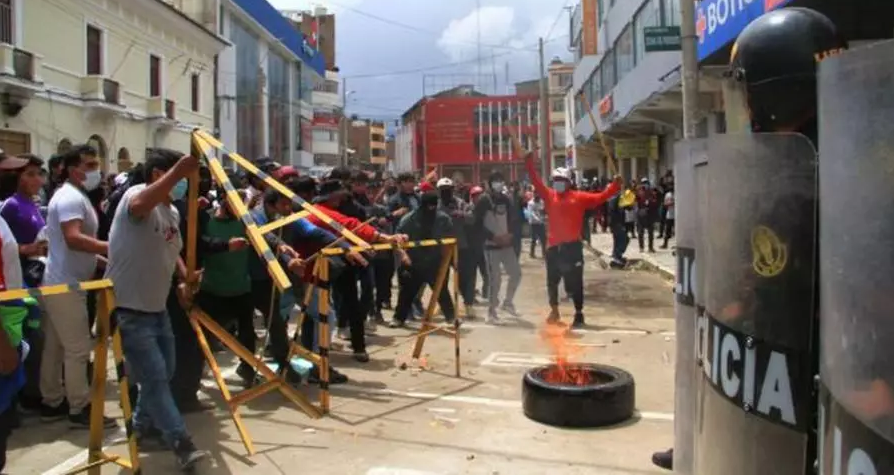
The trigger for the great popular uprising was a strike by truck drivers over the absurdly high increase in fuel prices, with certain types of fuel for trucks and machinery increasing in price by up to 13% between 9 and 10 March. As a result of petrol and fertiliser prices, which have tripled, the price increase of products such as rice, potatoes, maize, cotton, pulses and vegetables is expected to exceed 35%, according to the Peruvian Agrarian Convention. Thus, the struggle of the popular masses is directly directed against their increasing impoverishment and the opportunist government that is ensuring this state of affairs.
Argentina: Mass protests against IMF loans
In Argentina, the people have been fighting against a dirty deal made by the reactionary government with the International Monetary Fund (IMF) since the beginning of March. This deal sells the country further and further to the Yankees, intensifies the country's dependency and is nothing but a robbery of the Argentine people. The popular masses, who took to the streets en masse against it, know this too. Especially the capital Buenos Aires was shaken by the protests. Government buildings were attacked, the police of the old state were fought and again and again the flag of the Yankee imperialists was burnt.
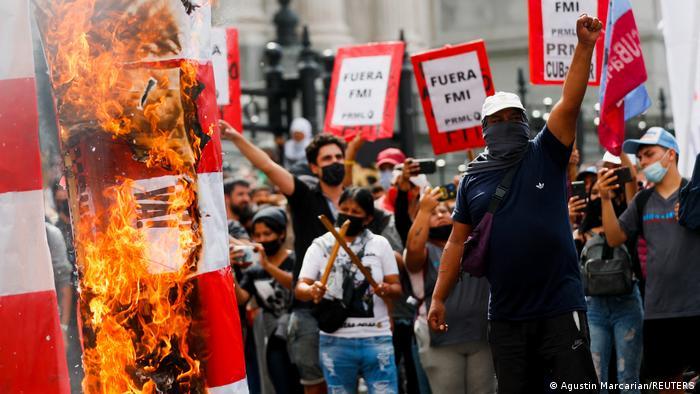
Mexico: The Caravan for Water and Life continued its journey
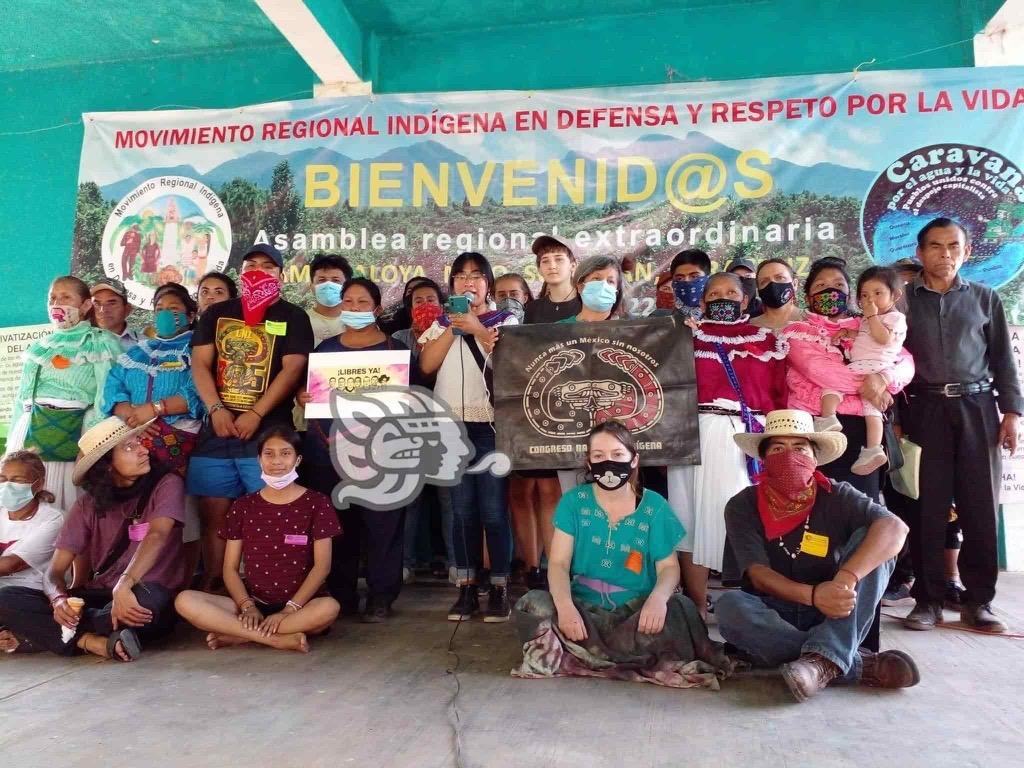
The Caravan for Water and Life "Pueblos Unidos contra el despojo capitalista" (United Peoples against Capitalist Expropriation) continued its journey last week. It arrived in Veracruz, passing through the municipality of Actopan in the municipality of Amamaloya. In the municipality of Actopan, several villages are suffering from the onslaught of mining companies, especially because of the "Caballo Blanco" mining project, a Canadian imperialist company called Goldgroup and its subsidiaries in Mexico. The interests of the capitalists are great, but the resistance of the people is greater.
In the port city of Veracruz, the people are fighting against hotel companies that constantly dump their waste water into the sea and have previously robbed the people of their land and beaches. This practice is actually forbidden, but continues to be practised by the big hotel companies with the connivance of the government. The big excuse that these are "storm drains" is a big lie, because the drains are permanent, even in times of drought like the country is currently experiencing.
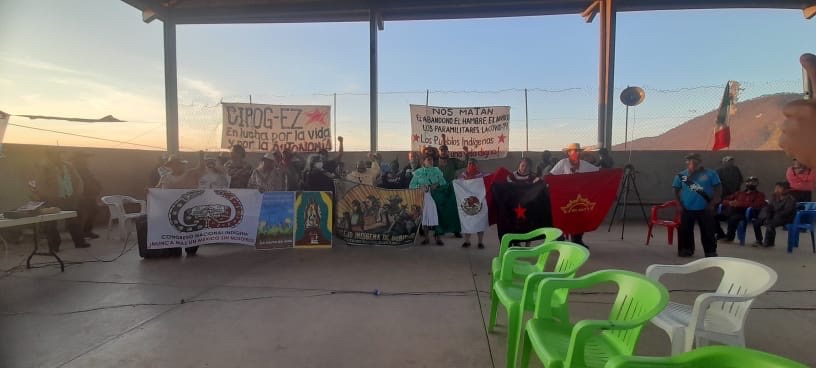
On Saturday 2 April, the caravan arrived in the municipality of Tlalpan in the Sierra Baja of Guerrero to accompany the peoples organised in the Indigenous and Popular Council of Guerrero-Emiliano Zapata (CIPOG-EZ) in their persistent resistance struggle for peoples' self-determination based on self-government and armed self-defence of a democratic nature. Later, the presence of more than 50 trucks and several motorbikes of narco-paramilitaries identified with the criminal group "Los Ardillos" was reported. CIPOG-EZ describes this military parade by the warlords as an act of harassment against the organised peoples and against the caravan. However, the community organisation, the caravan itself and national and international organisations joined forces, denounced the situation.
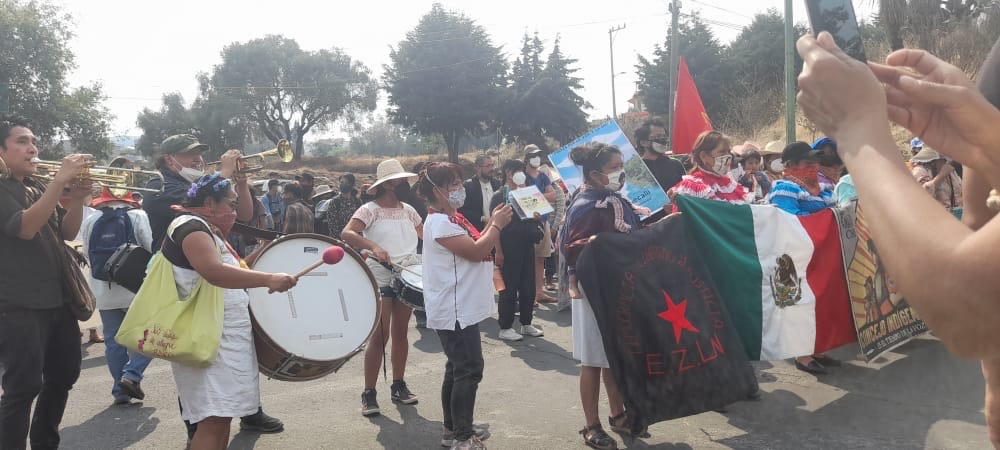
On 3 April, the caravan was able to leave early and without incident, arriving at around 5pm in the Milpa Alta community in Mexico City, where we were welcomed with music and a ritual, in addition to welcoming words.
Paraguay: Peasants and truck drivers fight the old state and the crisis
More than 5,000 poor and landless peasants marched to Asunción, the capital of Paraguay, on 24 March to take to the streets and demand land and aid in the face of the crisis. They received great solidarity from truck drivers who have been protesting against increased fuel prices for over two weeks. The drivers brought thousands of farmers on their trucks to the capital, and participated in the actions and blockades carried out by the farmers.
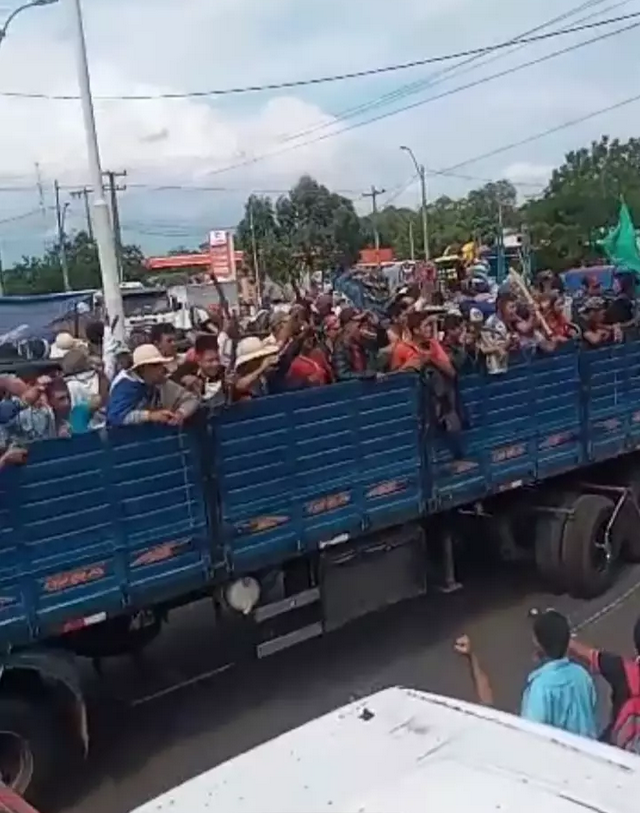
The protests took place as part of the 28th farmers' march. The peasants demanded the promotion of small farmers and the legalisation of lands occupied by poor peasants, and the abolition of the Zavala Riera Law, which is used to criminalise the struggle of peasants and indigenous people. Last year alone, more than 5,000 peasants were evicted from their land.
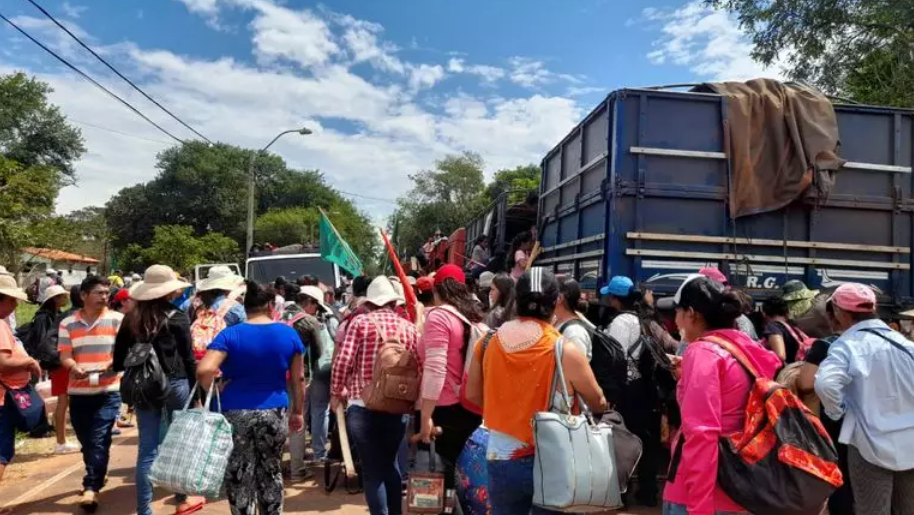
Thousands of peasants camped in O'Leary Square and demonstrated in several buildings in the old state. Students, teachers and workers and many other masses also joined the farmers' actions and showed solidarity.
Also on 24 March, blockades were held by peasants with the support of truck drivers in about 70 places all over Paraguay. On Route V alone, which runs between the Paraguayan capital and the town of Pedro Juan Caballero in Mato Grosso do Sul, 11 places were blocked.
Colombia: Army shoots civilians in Putumayo
The Colombian army shot several civilians in the department of Putumayo. In the early morning, masked soldiers stormed a property where a public celebration had taken place the previous evening. According to eyewitnesses, the forces first pretended to be members of the FARC and then started shooting at the people.
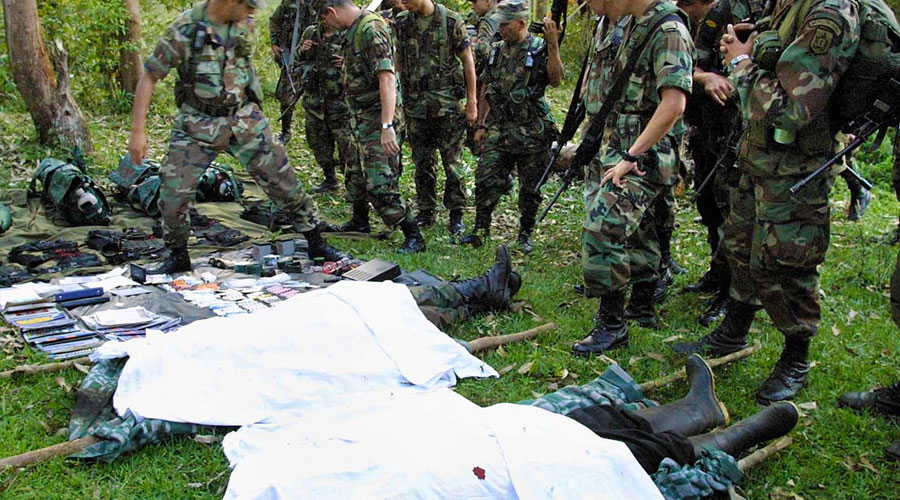
The arch-reactionary Colombian President Iván Duque and the Defence Minister Diego Molano, however, mendaciously speak of a strike and an action against the FARC and drug-related crime. Local human rights organisations and organisations of indigenous peoples of the Colombian Amazon deny this story of lies by the government. They speak of a targeted killing of civilians by the military. Such actions are also known in Colombia as "falsos positivos", which translates as "false report".
From 2002 to 2008, the Colombian army killed more than 6400 civilians whom they sold as guerrilla fighters killed in action. In this way, supposed successes by the old state and its military were to be booked, which in reality did not exist. In addition, soldiers collected bonuses for murdered guerrillas during this time, which stimulated their lust for murder enormously.
